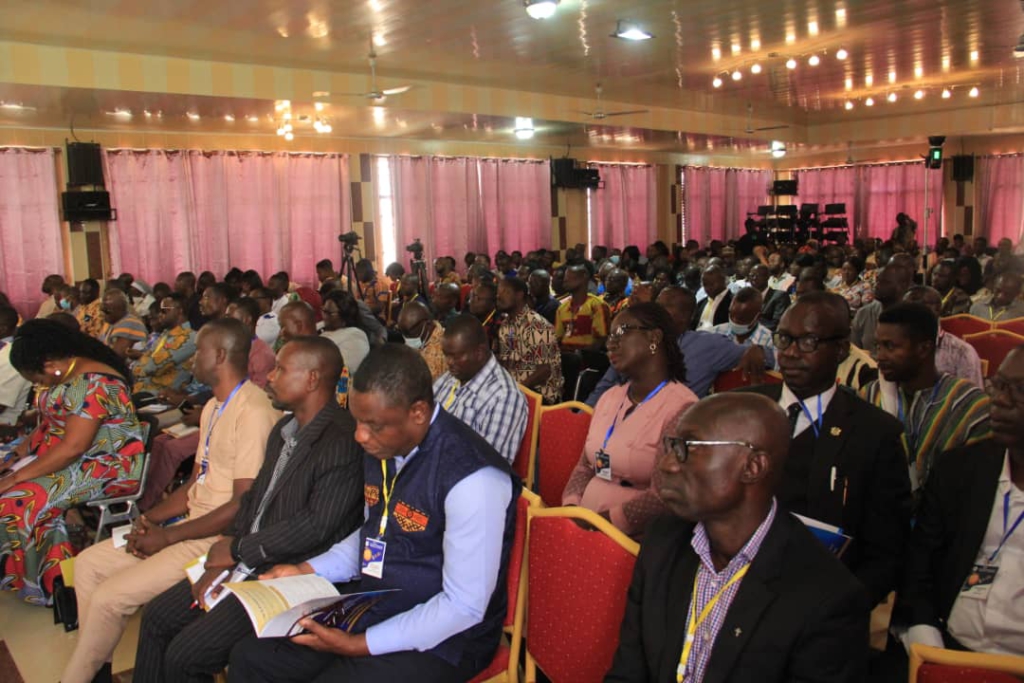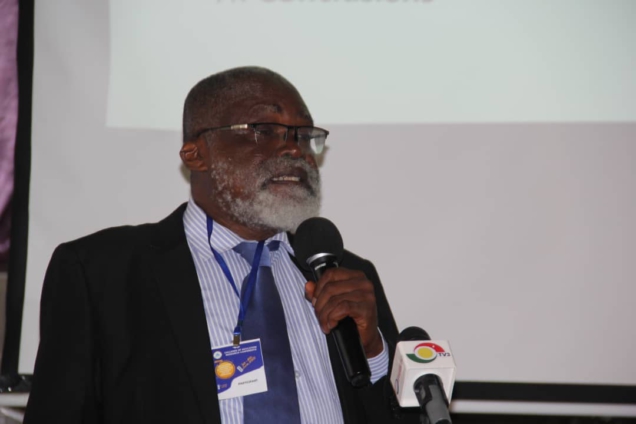A Professor of Geography and Rural Development at the Kwame Nkrumah University of Science and Technology (KNUST), Professor Daniel Buor has called for a major percentage of the government's Appiatse Development Fund be devoted to the education of vulnerable children.
According to him, despite the increased number of children affected by disasters, humanitarian aid for education nearly halved between 2010 and 2015, creating an annual funding gap of $8.5 billion, said Prof Buor.
"In 2015, less than 2% of all humanitarian aid went to education", he noted.
He therefore recommended that, "The government of Ghana has set up Appiate Development Fund to mobilise financial support for the development of the shattered community. It is hoped a significant portion of the fund shall be allocated to the education of vulnerable children".
Professor Bour made the suggestion at a research conference of the Colleges of Education and Social Education Research at Nsuta in the Ashanti region.
In his opinion, there are still teething problems in dealing with post-emergency situations; adding that, humanitarian aid during calamities has been insufficient.
At the conference, Professor Bour further stated that despite calamities in various areas around the country, children are driven to learn, citing an 8-year-old boy named Kwesi who survived the Appiate disaster and is anxious to return to school.

According to him, when UNICEF representatives questioned Kwesi's education, he answered, "I want to go back to school and see how well I did during the exam".
As a result, UNICEF gave school supplies to assist the victims in continuing their education in their temporary housing.
Despite efforts by government and humanitarian organizations to address issues of education for children and youth during calamities, there are still obstacles to overcome.
Per the numbers, 12 percent of children in emergency situations who needed education support were helped, and education in emergency situations only received 48 percent of what it had requested in 2016, which is lower than the norm for other sectors.
According to the Robert Strauss Centre for International Security and Law, almost 500 million school-aged children reside in countries where continuing catastrophes are present. Also 75 million children and teenagers had their education disrupted, had poor-quality education, or dropped out entirely in 2017.
The conference was therefore designed to offer thought leadership within the teacher education community and foster education development partnership between government, CSOs in education, and academia.
It brought together scholars, practitioners, policymakers and government officials in the country to discuss educational advancements.
About 310 researchers, practitioners, policy makers and CSOs are attending the 2-day event.
Latest Stories
-
Bawumia’s 8 minutes elite ball that zapped the energy of trigger happy politicians
32 minutes -
It will be a betrayal if National Cathedral saga does not feature in ORAL’s work – Ablakwa
42 minutes -
‘It’s unfortunate we had to protect the public purse from Akufo-Addo’ – Ablakwa on ORAL Team’s mission
1 hour -
Congo lawyers say Apple’s supply chain statement must be verified
2 hours -
Stampede in southwestern Nigerian city causes multiple deaths
2 hours -
Tens of thousands without water in Mayotte as curfew brought in
2 hours -
ORAL: We won’t witch-hunt, we’ll focus on transparency, not revenge – Ablakwa
3 hours -
Attempted robbery: Accused claims he carried cutlass for protection
3 hours -
Excavator operator jailed for stealing
3 hours -
African fans age-shame me for putting on some outfits – Tiwa Savage
4 hours -
Tiwa Savage criticised by female fans for stance on cheating in relationships
4 hours -
Bank of England expected to hold interest rates
4 hours -
Congo river boat sinks killing at least 22
4 hours -
Nigeria approves Shell’s $2.4 billion asset sale to Renaissance
4 hours -
Embattled Liberian speaker questioned by police over parliament fire
5 hours

